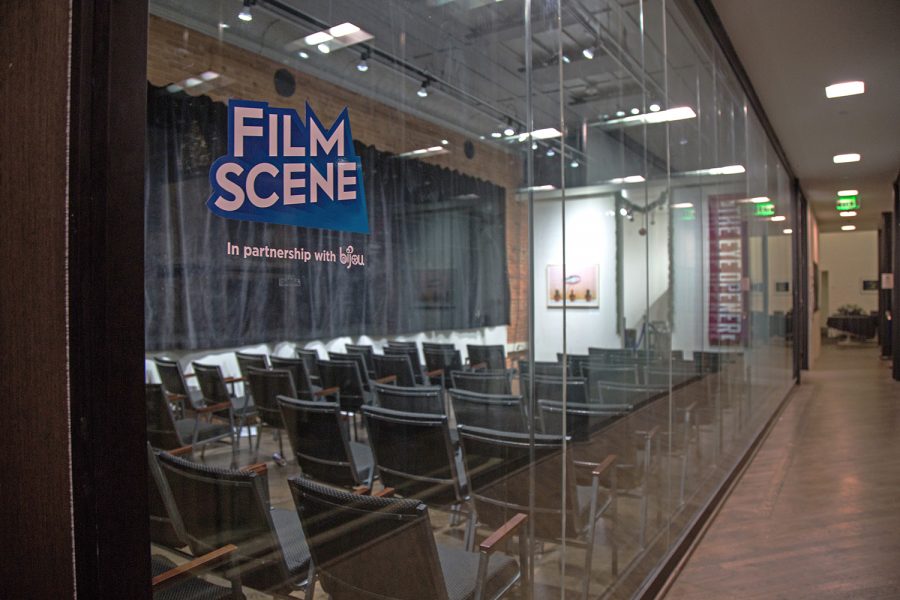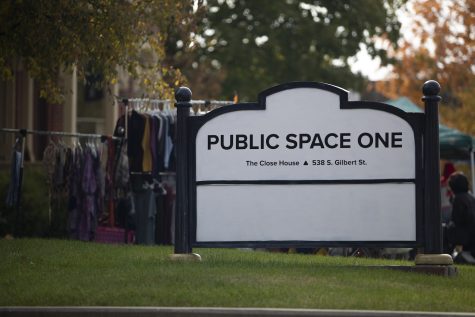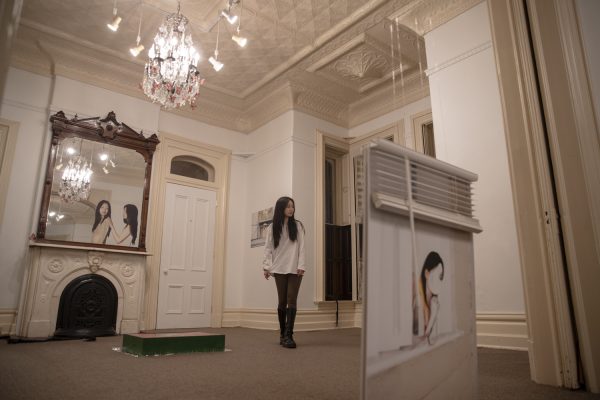Review: ‘They Shall Not Grow Old,’ a beautiful, shocking, and human glimpse into World War I
Peter Jackson’s ‘They Shall Not Grow Old’ uses actual footage from World War I and interviews with veterans to create a vivid documentary.
February 21, 2019
A film unlike any other in the way it captures World War I has made its way to Iowa City.
Peter Jackson’s They Shall Not Grow Old is a film that gives viewers a profuse feeling of a time when the world was in the middle of its first global conflict. They Shall Not Grow Old was made by cutting together over hundreds of hours of silent war film and dozens of real-life veterans’ interviews to create a time machine into the era.
The truly amazing aspect of this film is how Jackson and his team restored this century-old footage. In order to restore it, Jackson and his crew changed the frames per second to the standard 24 and added both color and sound to the silent, colorless footage.
Rebecca Fons, FilmScene programming director who helped bring the unique documentary to local screens, had heard about the film through the cinema grapevine.
“I was familiar with the film during end of summer, early fall 2018,” Fons said. “It had sort of been brought up on industry websites … It was starting to make news that it was this incredible new 3D restoration of all this World War I footage. I have always been a Peter Jackson fan; I think most people who love movies have a soft spot for him.”
UI student Ellis Fontana, a Bijou Film Board member, was struck by the film as soon as he heard about it months ago.
“I’m a history major, and because of that, I have always been fascinated with history since fifth grade,” he said. “So seeing this project and how vibrant it was compared to what you normally see from old footage, it just immediately caught my attention.”
RELATED: Documentary examining Iowa City’s wrestling, writing legacies wins regional Emmy award
Film restoration of this magnitude is something that some film purists may look down upon.
“I think there are some purists who don’t like some of the gimmicky restoration stuff,” Fons said. “But I think there are so many reels of film out there in the world, sitting and languishing on shelves not seen. I think it’s really exciting for something that hasn’t been seen but by a few eyes [that] can be brought to the Midwest and to the community in Iowa.“
Jackson didn’t just settle for visual restorations. With the use of audio professionals and lip readers, his crew recreated authentic audio for the film’s action and also interpreted the real-life dialogue from the footage. When watching the film, the viewers will hear actors speak the exact words the soldiers said in the footage.
The documentary uses old interview recordings with World War I vets from the 1960s. This aspect of authenticity is something that adds to the depth of the film.
“Restoration is a very important part of the historical process, I think,” Fontana said. “It gives you a greater understanding. It makes it more real. It changes it from more of an abstract concept to more of a literal concept in a lot of people’s mind, I guess.”
Sitting in a quiet theater seeing the faces of thousands of men who probably died shortly after the footage was recorded is something that has an effect on any viewer. It definitely takes makes the abstract very literal. Hearing the testimony from real-life soldiers who experienced trench warfare, toxic gassings, and countless other tragic moments is something that will stay with an audience well after the credits roll.
This film presents itself in a very modern view of a time in history that many see as a the far distant past. The film does not merely showcase the historical moments of the war, it stresses the very human side to it, with a focus on mundane parts of war, such as life among the trenches.
“It’s a side of the past you don’t get to see,” Fontana said. “If you look at old new footage, it’s all grainy and choppy … it looks very artificial, whereas this looks as if it was filmed yesterday.”
This film came out in a year in which many other acclaimed documentaries have opened as well.
“2018 was a really interesting year for documentaries,” Fons said. “But there are certain historical documentaries that historically don’t bring audiences out.”
This documentary is one of the exceptions, with the film getting praised both critically and by audiences. Currently on Rotten Tomatoes, They Shall Not Grow Old sits at a 99 percent fresh rating for Critics and 92 percent by audiences.
Todd Pettys, who saw a screening of the film at FilmScene on Feb. 19, said word of mouth brought him to the theater.
“Several friends told me it was one of the best films they have seen in years … very powerful, moving, really incredible technically,” he said.
They Shall Not Grow Old will play at FilmScene for the next two weeks.















